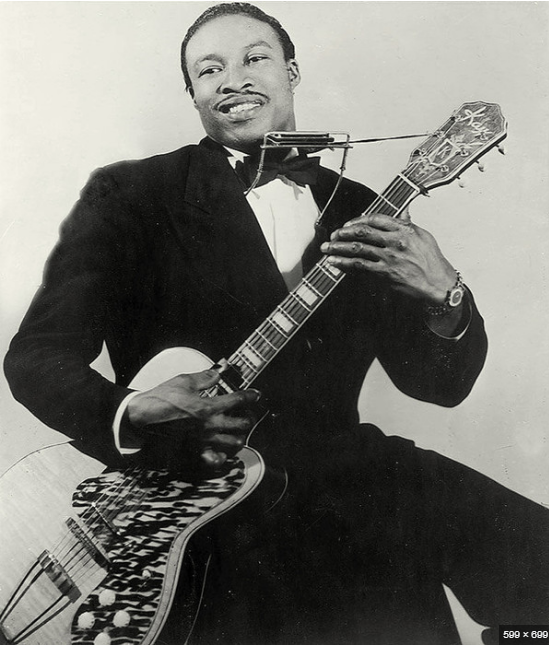
Mathis James Reed (September 6, 1925 – August 29, 1976)[1] was an American blues musician and songwriter. His particular style of electric blues[2] was popular with blues as well as non-blues audiences. Reed’s songs such as “Honest I Do” (1957), “Baby What You Want Me to Do” (1960), “Big Boss Man” (1961), and “Bright Lights, Big City” (1961) appeared on both Billboard magazine’s rhythm and blues and Hot 100 singles charts.[3]
Reed influenced other musicians, such as Elvis Presley, Hank Williams Jr., and the Rolling Stones, who recorded his songs.[4] Music critic Cub Koda describes him as “perhaps the most influential bluesman of all,” due to his easily accessible style.[4]
Reed was born in Dunleith, Mississippi, United States.[5] He learned the harmonica and guitar from his friend Eddie Taylor.[6] After several years of busking and performing there, he moved to Chicago, Illinois, in 1943.[1] He was then drafted into the U.S. Navy and served in World War II.[1] He was discharged in 1945 and returned briefly to Mississippi,[1] marrying his girlfriend, Mary (henceforth known as Mama Reed). He then moved to Gary, Indiana, to work at an Armour meat-packing plant. Mama Reed was an uncredited background singer on many of his recordings, notably the hits “Baby What You Want Me to Do“, “Big Boss Man” and “Bright Lights, Big City“.[6]
“At his best—on Vee-Jay in the ’50s—Reed sang with the languid self-assurance of a man who never ran for the bus because he wanted to spend the fare on a glass of wine, and the unindustrious shuffle rhythms of the Vee-Jay band ambled right along behind.”
–Christgau’s Record Guide: Rock Albums of the Seventies (1981)[7]
By the 1950s, Reed had established himself as a popular musician. He joined the Gary Kings with John Brim and played on the street with Willie Joe Duncan.[4] Reed failed to gain a recording contract with Chess Records, but signed with Vee-Jay Records through Brim’s drummer, Albert King.[1] At Vee-Jay, Reed began playing again with Eddie Taylor and soon released “You Don’t Have to Go”,[1] his first hit record.[4] It was followed by a long string of hit songs.
Reed maintained his reputation despite his rampant alcoholism; his wife sometimes had to help him remember the lyrics to his songs while recording.[1] In 1957, Reed developed epilepsy, though the condition was not correctly diagnosed for a long time, as Reed and doctors assumed it was delirium tremens.[4] When Vee-Jay Records closed, his manager signed a contract with the fledgling ABC-Bluesway label, but Reed never produced another hit.[1] In 1968, he toured Europe with the American Folk Blues Festival.[2]
Reed’s grave at Lincoln Cemetery
Reed died of respiratory failure in 1976, in Oakland, California,[1][8] eight days short of his 51st birthday. He is interred in the Lincoln Cemetery, in Blue Island, Illinois. Reed was posthumously inducted into the Blues Hall of Fame in 1980,[9] and the Rock and Roll Hall of Fame in 1991
